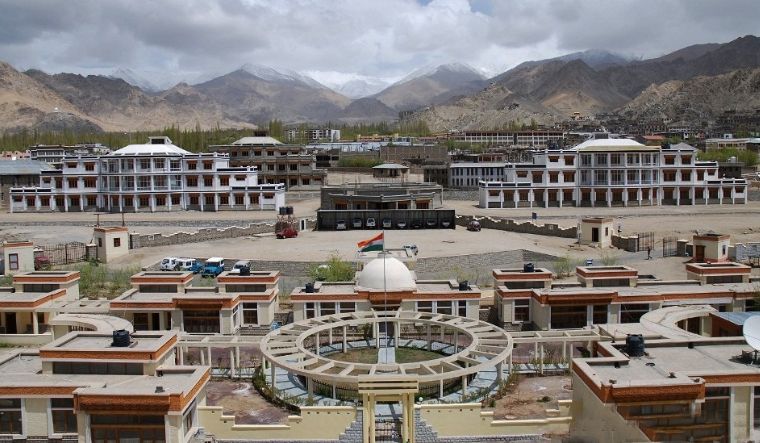The Centre has agreed to hold discussions with the leaders of Ladakh regarding their Sixth Schedule demand.
“Today, we had the third meeting with the High Powered Committee of the Ministry of Home in New Delhi,’’ said Sajad Kargil, a member of the Kargil Democratic Alliance (KDA), at a press conference after the meeting. “It was decided in the next meeting that legal experts will present to discuss the issue of the Sixth Schedule for Ladakh.”
He said the meeting was held in a very cordial environment, and three members each from KDA, representing the Kargil district, and the Leh Apex Body from Leh district participated in the meeting.
The High Powered Committee is led by Minister of State for Home Nityanand Rai. The last meeting took place on February 19 in Delhi and succeeded in breaking the deadlock between the Centre and the leaders of Ladakh over their demands for Statehood, Sixth Schedule, two Lok Sabha MPs, a separate Ladakh cadre, a Service Selection Board, and a Public Service Commission (PSC).
Kargili said that the committee has accepted their demand on SSRB and PSC, and the notification will be issued soon. He mentioned that in the next meeting, the Sixth Schedule status for Ladakh will be discussed with legal experts.
“We suggest that, apart from the legal experts, political leaders should also be invited to the meeting for the smooth implementation of agreed-upon decisions,’’ he said.
He added that the MHA is ready to hold the meeting in Ladakh, but they want it in Delhi.
Following Ladakh's separation from Jammu and Kashmir on August 5, 2019, and its grant of UT status, people have been advocating for constitutional safeguards regarding land, jobs, and a distinct identity. The decision to confer UT status to the region received approval from people in Leh but was rejected by those in Kargil.
The realisation among Leh residents that the protective provisions for land, jobs, and identity, previously enjoyed under Article 370 when Ladakh was part of Jammu and Kashmir, no longer applied as a UT, sparked unrest, leading to protests. The LAB subsequently collaborated with the KDA to jointly pursue constitutional safeguards for the region. They agreed to include the demand for statehood in their list of demands for Ladakh. After Ladakh became a UT, the Ladakh Autonomous Hill Development Council (LAHDC) in Leh and Kargil lost their powers. The four assembly seats, two in Kargil and two in Leh, ceased to exist as the UT status was granted without an assembly, unlike in Kashmir.
Last December, the Centre reaffirmed its commitment to accelerating Ladakh's development and addressing its people's aspirations. This commitment was reiterated during discussions with the high-powered committee chaired by Rai.
Established by the Ministry of Home Affairs, the committee for Ladakh, under Rai's leadership, aims to preserve the region's unique cultural and linguistic heritage while considering its strategic significance. It focuses on safeguarding land, promoting inclusive development, empowering the Ladakh LAHDCs of Leh and Kargil, and exploring constitutional safeguards.
The BJP is keen to end the deadlock before the code of conduct for the Lok Sabha polls comes into effect and retain the lone Lok Sabha seat in the region.



